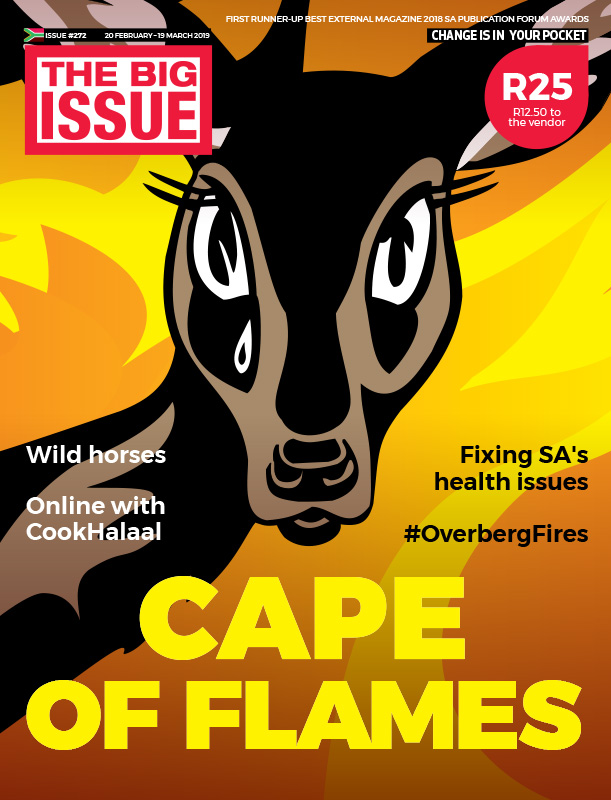New Activities for Active Citizens
South Africans, you’ll want to get involved in active citizenship this month! Not only is Human Rights Day approaching but government has launched a brand new environmental campaign. There are some great and easy actions that any citizen can undertake and there’s no time like the present!
As South Africans, it’s almost second nature to complain about the state of the nation and it’s never hard to find something or other to let lose about. However, as citizens who actually want to see change, it’s important to be a part of that change as individuals.
The Big Issue is a spectacular social entrepreneurship programme that is easy for individuals to support. In a country with an unemployment rate of 27,1 % job creation is really a priority. Unless you’re really wealthy, though, it’s not easy to create jobs. But if we’re living in a capitalist economy where supply of something (which involves creating employment) follows demand for that thing, then by buying consciously we can positively influence job creation. Supporting The Big Issue is one way of shopping consciously. For just R25 every month, you can buy an interesting magazine, while directly creating jobs! There is also a subscription option (R275 per year, including postage in South Africa and R204.84 per year for an online subscription). Although the profits from the subscriptions don’t go directly to the vendors, the money is channelled into social and skills development programs which will help to further develop the vendors’ entrepreneurial skills.
Human Rights Day takes place on 21 March 2019. While it is a public holiday (yay!), it does also have historical significance. It commemorates the 1960 Sharpeville Massacre during which 69 people died while peacefully protesting against Apartheid pass laws. Given the sombre history of the day, it’s perhaps appropriate that there aren’t any grand celebrations taking place in Cape Town this year but there are still ways to meaningfully commemorate the day.

The National Gallery is exhibiting its most recent acquisitions. Image: Iziko
There are things that our government gets right and granting free access to museums and galleries on public holidays is one of my favourites. Most Iziko museums, except the Planetarium and the Castle of Good Hope, are included in this. Iziko’s South African Museum holds a number of natural and historic artifacts, including dinosaur fossils. Over at the Iziko South African National Gallery, Filling in the Gaps, an exhibition of works acquired since 2014, is currently on exhibition. Artists featured include Moses Tladi and Peter Clarke.
An additional benefit to Human Rights Day is Library Week which takes place across the country from 18 to 24 March 2019. Although most of us see it only as an opportunity to dodge library fines, the idea is to encourage active involvement with libraries, for example by joining the local Friends of the Library association. These associations arrange book sales and other fundraisers for the libraries. South Africans can enquire at any local library.

The government has launched a new campaign to encourage eco-friendly habits. Image: the South African Government
A wonderful new initiative has just been launched in time for active citizens to get involved! President Ramaphosa has just launched Good Green Deeds, a new environmental awareness campaign that aims to reduce environmental pollution and, ultimately, to improve quality of life.
There’s nothing new about recycling and avoiding littering but what is of interest is that government is now actively facilitating eco-friendly practices (which points out just how important it is for us to think green). This should encourage us to finetune our green practices.
Recycling contributes as much as R15 billion a year to our economy so it’s a useful tool to resolving socio-economic problems, as well. For those who don’t rely on recycling to make a living, ensure that your recycling is going to a public school or NPO so that these organisations can profit financially, as well as the environment. This is even more beneficial for the environment as having an incentive to recycle helps to encourage further recycling. (As much as a mind-shift as it may be to switch, your former private school does not need extra funds for a new astroturf!)
After all the years carrying around reusable bamboo straws to avoid single-use plastic, it’s finally time to let go and accept the straws that accompany your drinks! Mugg & Bean and Ocean Basket are just some of the major restaurants chains that now serve recyclable cardboard straws! Even more impressive is that Coca-Cola will be ending its supply of plastic straws to soft drink outlets. However, there are still eateries that present plastic straws. With big business like Coca-Cola on board the no-plastic straw bus, now is a good time to apply the pressure if you are given a plastic straw. There’s no need to give your waiter a lecture but a few, well-chosen comments will get back to the powers that be.
With actions like these, there really is no excuse for South Africans to sit back and moan about our nation’s problems. Whether you’re paging through the photographic essay in The Big Issue or filling a bag of plastic to recycle, you can easily contribute to the resolution of economic issues in South Africa. Now, that certainly sounds like a meaningful way to participate in our democracy!
- Active Citizenship in South Africa’s New Home: We’ve Moved to In Mzansi - Jul 4, 2022
- Join My Museums in Cape Town Project - May 30, 2021
- Reading Zambia: The Mourning Bird - Oct 4, 2020




